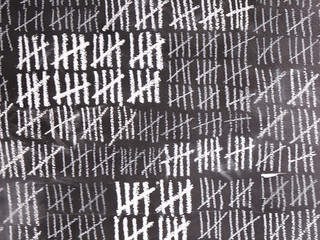September 9, 2025
Browse by Subject
- Defamation (588)
- Copyright (511)
- Legal Threat (507)
- Free Speech (411)
- Blogs (315)
- Section 230 (309)
- Anonymity (301)
- Social Media (297)
- Citizen Journalism (286)
- Newsgathering (286)
- Fair Use (280)
- Criminal (279)
- Journalism (266)
- Access to Gov't Information (242)
- Third-Party Content (239)
- Censorship (230)
- Twitter (229)
- Privacy (213)
- CMLP (211)
- Trademark (189)
- DMCA (162)
- Shield Laws (149)
- Access to Courts (148)
- Prior Restraints (120)
- FOIA (107)
- SLAPP (105)
- Cyberbullying (89)
- Elections and Politics (88)
- Legal Guide (84)
- Recording Others (83)
- User Comments or Submissions (82)
- Terms and Conditions (80)
- Publication of Private Facts (80)
- Right of Publicity (79)
- Subpoenas (78)
- Advertising (77)
- Consumer Ratings and Reviews (59)
- Intrusion (54)
- False Light (54)
- Student Speech (54)
- Gripe Sites (51)
- Congress (49)
- Hot News Misappropriation (47)
- Resources and Tools (45)
- Open Meetings (43)
- Children (42)
- Linking (41)
- Computer Fraud and Abuse Act (41)
- Obscenity (36)
- Access to Places (35)
- Business Torts (33)
- Identity (33)
- Aggregation (33)
- Trade Secrets (30)
- Trade Libel (25)
- Personal Jurisdiction (24)
- Licensing (24)
- Business Formation (23)
- Taxes (22)
- Sanctions (21)
- Employee Blogs (20)
- Domain Names (19)
- Real Estate (17)
- Retractions and Corrections (15)
- Credentials (15)
- DMLP (13)
- Cyberstalking (13)
- Reviews (11)
- Insurance (11)
- Hate Speech (11)
- Misappropriation (11)
- Establishment Clause (10)
- Government Speech (9)
- Website Design (7)
- Statute of Limitations (4)
- Science (3)
- Patent (2)
Recent Blog Posts
-
11 years 2 months ago
-
11 years 3 months ago
-
11 years 4 months ago
-
11 years 4 months ago
-
11 years 4 months ago
-
11 years 5 months ago
-
11 years 5 months ago
-
11 years 5 months ago
We are looking for contributing authors with expertise in media law, intellectual property, First Amendment, and other related fields to join us as guest bloggers. If you are interested, please contact us for more details.


 [We are delighted to run this piece by our friend and Berkman Center colleague Ryan Budish - eds.]
[We are delighted to run this piece by our friend and Berkman Center colleague Ryan Budish - eds.]
 In December 2011, hacktivist collective Anonymous (in)famously
In December 2011, hacktivist collective Anonymous (in)famously  Several
Several A new bill proposed by Florida legislator Carl Zimmermann seeks to end “mugshot websites,” a relatively new industry that exploits the marriage of the internet and open records laws in order to make a profit.
A new bill proposed by Florida legislator Carl Zimmermann seeks to end “mugshot websites,” a relatively new industry that exploits the marriage of the internet and open records laws in order to make a profit. Cell phones allow us not only to communicate with one another, but also to take and store pictures, “check in” from a location, balance our checking account, and even update our blogs. When the content of a cell phone may help the police to solve a crime, the legality of the search of both the phone and its content is of crucial importance. However, the law of warrantless searches of cell phones is not yet settled.
Cell phones allow us not only to communicate with one another, but also to take and store pictures, “check in” from a location, balance our checking account, and even update our blogs. When the content of a cell phone may help the police to solve a crime, the legality of the search of both the phone and its content is of crucial importance. However, the law of warrantless searches of cell phones is not yet settled.
 When hearing the expression “lèse majesté,” images of the Queen of Hearts ordering heads to be chopped off ASAP may come to mind. Marie-Antoinette, the queen who was once a “majesté” in France, herself lost her head during the French Revolution. Surely, the crime of lèse majesté is now a thing of the past?
When hearing the expression “lèse majesté,” images of the Queen of Hearts ordering heads to be chopped off ASAP may come to mind. Marie-Antoinette, the queen who was once a “majesté” in France, herself lost her head during the French Revolution. Surely, the crime of lèse majesté is now a thing of the past?
 The DMLP recently appeared as an amicus curiae in Commonwealth v. Busa, a case brought in Boston Municipal Court under Massachusetts's anti-counterfeiting law,
The DMLP recently appeared as an amicus curiae in Commonwealth v. Busa, a case brought in Boston Municipal Court under Massachusetts's anti-counterfeiting law, 